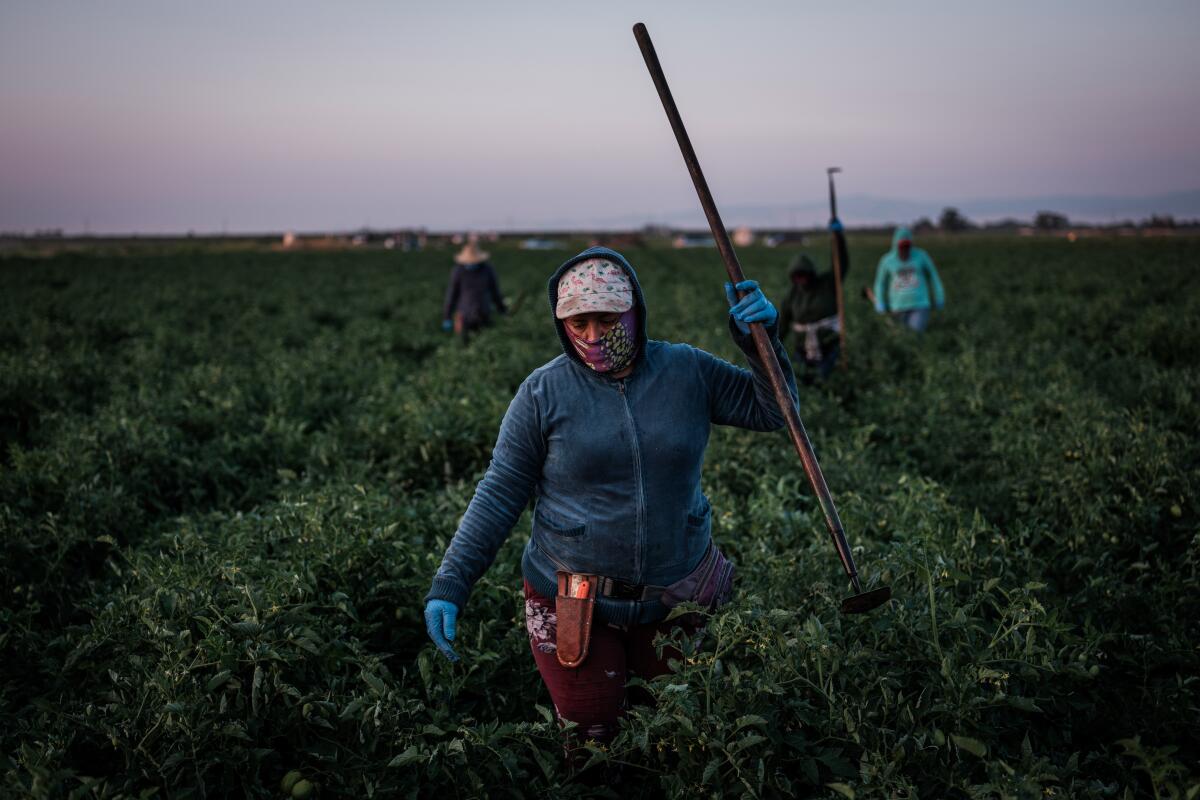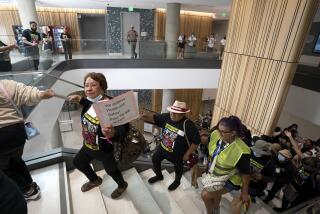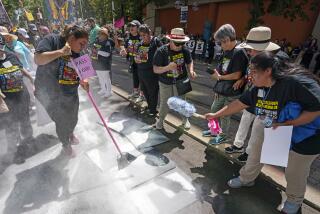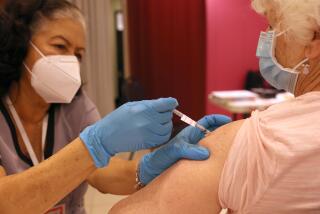Editorial: COVID is ravaging California’s essential workers. Stop stalling and protect them

One of California’s worst failures in the pandemic has been the woeful effort to protect the essential workers who are bearing the brunt of COVID-19.
The state cannot slow the spread of the coronavirus and return to some sense of normalcy without keeping workers safe. Yet too often essential workers have been treated as an afterthought. Or expendable. That has to change.
California leaders knew months ago that essential workers — the ones in healthcare, food production and other indispensible industries who were required to show up as the pandemic raged — were at greater risk of contracting COVID-19 than workers who could do their jobs from home. The threat was even higher for low-wage workers who do not have paid sick leave, health insurance or job protections. They often can’t afford to take time off if they’re ill or stuck in risky environments without adequate protections. And leaders knew that the virus spread more easily in crowded homes and workplaces — again, conditions that many of the most at-risk workers face on a daily basis.
As far back as April, health officials began to sound the warning that young Black and Latino Americans — who are disproportionately represented among essential workers — were getting infected and dying at higher rates than whites and Asians. Yet there has been no comprehensive effort to ensure that the most vulnerable workers are protected and can do their jobs safely.
As a result, cases keep mounting at an alarming rate in California, with some of the most serious outbreaks coming in factories, warehouses, food processing plants and among farmworkers. Los Angeles Apparel, where garment workers are sewing face masks, was closed down twice by Los Angeles County health officials, but only after more than 300 employees were infected and four died.
In the last week, Gov. Newsom admitted that the state hasn’t done enough to protect essential workers. He pledged to ramp up educational programs on maintaining safe workplaces and to provide hotel rooms so farmworkers who live in cramped conditions can be quarantined without exposing family members or co-workers. He also said the state would use $52 million in federal funds to pay for personnel, testing and contact tracing in the Central Valley, where there is a surge in infections, especially among essential workers.
But there’s still far more to do. In theory, the federal Occupational Safety and Health Administration should be issuing workplace safety regulations and conducting inspections. But under the deregulatory Trump administration, the agency has taken a laissez faire attitude. That means state safety agencies and county health departments have to be much more aggressive in targeting at-risk workplaces for education, inspection and enforcement. They should fine or shut down companies that do not build coronavirus safeguards into their operations, including providing workers with protective gear and allowing for social distancing.
California also has to make sure all workers have job protections and paid sick leave so they can afford to stay home if they’re sick. Those guarantees must also extend to immigrants living here without permission, who often lack an employment safety net. The state cannot beat COVID-19 until essential workers can be safe on the job.
More to Read
A cure for the common opinion
Get thought-provoking perspectives with our weekly newsletter.
You may occasionally receive promotional content from the Los Angeles Times.










